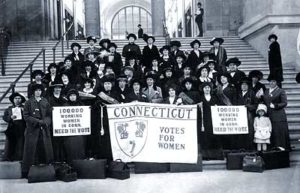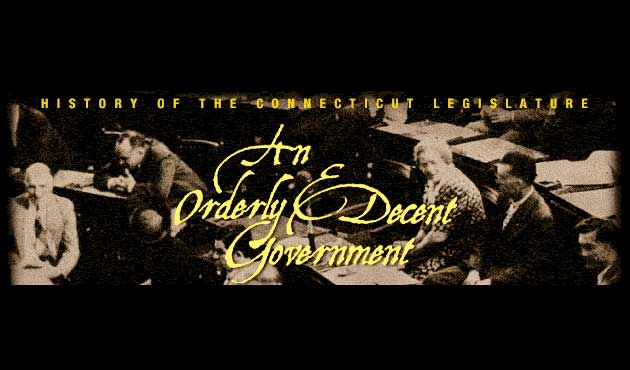The early years of the 20th century were a time of vigorous political and social reform across America. But in Connecticut, an archaic representation system and the collapse of the two-party system continued a long tradition of limited government and modest state expenditure. In a period that deferred to business leadership and celebrated business values, the state’s manufacturing associations emerged as a fourth branch of government and turned aside virtually all legislation dealing with hours of labor, working conditions, the minimum wage, old-age pensions, and health insurance.
The dominant figure in both the business community and state government was J. Henry Roraback, the undisputed “Boss” of the Republican Party. Roraback controlled the legislative process with an iron hand, picking candidates, making key committee assignments, setting legislative agendas, and dispensing patronage.

Suffrage advocates
Beneath the surface prosperity of the period, old problems still simmered. Tensions between the state’s Yankee population and its newer immigrants escalated, while women grew increasingly impatient with a political system that so steadfastly refused them a voice. Finally, in 1919 after almost three centuries of struggle, women secured the right to vote.The Great Depression transformed Connecticut’s economic and political life.
Despite mounting suffering across the state, Roraback adamantly opposed a larger role for state government in helping those in need. As public opinion and most state politicians warmed to a greater state role in the crisis, Roraback became isolated and lost power. The Depression accomplished what no opponent had ever done – the defeat of J. Henry Roraback!
This article is a panel reproduction from An Orderly and Decent Government, an exhibition on the history of representative government in Connecticut developed by Connecticut Humanities and put on display in the Capitol concourse of the Legislative Office Building, Hartford, Connecticut.
<< Previous – Home – Next >>









